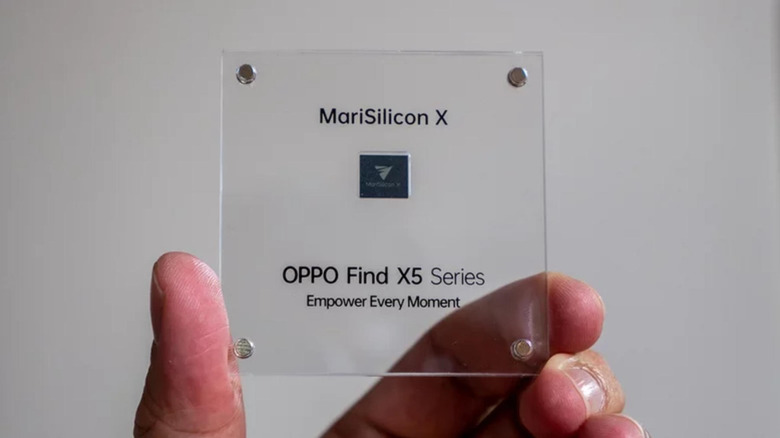Oppo's First Chipset May Take On MediaTek In 2023
Although Apple has been making its own smartphone processor for years, it wasn't until the launch of Apple Silicon, specifically the Apple M1, that device manufacturers realized the benefits of an in-house chip. Since then, phone makers other than Samsung and Huawei have been trying to carve out their own space in the semiconductor market, from special-purpose imaging chips to AI-oriented neural processing units and Google's very own Tensor application processor in the Pixel 6.
It's not a simple endeavor, of course — otherwise, every phone maker would have already come out with their own-brand CPU. However, that's not stopping some companies from trying, and Oppo reportedly already has a roadmap to become a bit less dependent on Qualcomm and MediaTek over the next two years. It'll reportedly do this with its very own Application Processor (AP) in 2023. Whether that will actually bear good fruit is, of course, still a matter to be seen.
There are benefits to making your own silicon if you're actually capable of doing it with successful reports. You get to decide what goes in and what doesn't, and you get to tweak performance according to your own rules. More importantly, you won't have to fight tooth and nail with your rivals over supplies, especially against bigger companies that have stronger purchasing power. You will still have to contend with production space at fabrication plants, of course, but there are a lot more choices in that regard compared to just two or three.
In fact, IT Home says that Oppo will be utilizing TSMC's processes in creating its own chips. This is the very same foundry that provides services to Apple, Samsung, Qualcomm, and practically any company that has ever tried to make its own silicon. According to the leak, Oppo's first Application Processor will be made with a 6nm process and will be ready by 2023. The company's first SoC (system-on-chip) that will integrate a modem, however, will use TSMC's 4nm process, but reportedly won't debut until 2024.
In-house silicon craze
This won't be the first time Oppo has tried to make its own chip, but it will certainly be the most ambitious. Last year, it launched the MariSilicon X, which was a dedicated imaging chip that integrated its own Neural Processing Unit (NPU) for AI-powered processing. Its efforts paid off, based on reviews of the Oppo Find X5 Pro's cameras, but it's still just a small step compared to an AP, much less a full-blown SoC.
At this point, however, details on this Oppo processor are almost nonexistent. There are no details yet on the number of cores, their clock speeds, or even whether it will be targeting premium or mid-range segments.
What's certain is that Oppo will be facing an uphill battle and must be able to provide performance that would at least be able to stand up to MediaTek's offering. It's really a Herculean task, but one that could have big payoffs if the current profitability of the SoC market is any indication.

